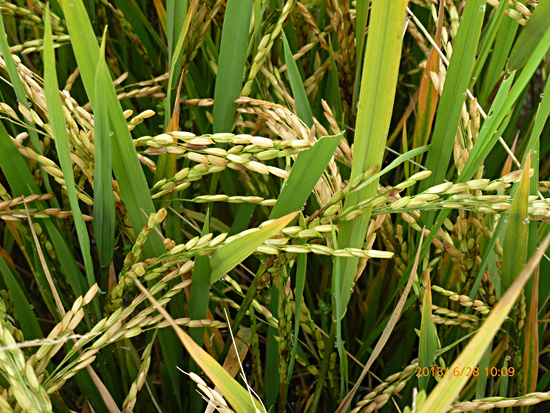Activities
Development of rice breeding materials and cultivation technologies to overcome biotic and abiotic stresses in Kenya: Assoc. Prof. Daigo Makihara
In Kenya, rice production is constrained by various biotic and abiotic stresses such as drought, cold weather at high elevations, salinity, low soil fertility, rice blast disease, and rice yellow mottle virus. An important issue for Kenyan agriculture is to overcome these stress conditions in order to improve rice productivity and yield stability. In recent years, it has become technically possible to tailor a rice variety by introducing useful QTLs that control important traits for adaptation to the stress conditions. However, productivity and the stress resistance/tolerance that a rice variety expresses in the field are not determined by genetic factors alone, but can also be affected by cultivation environment and cultivation management. This study aims to identify the QTLs for stress resistance/tolerance that can function effectively in Kenya's conditions, and to clarify conditions for the proper functioning of useful QTLs through the analysis of Genotype × Environment × Management interactions. The goals of this study are to develop breeding lines carrying useful QTLs that overcome the stresses, as well as cultivation technologies that maximize the potential of a rice variety.
 Cold weather damage on rice panicles (Mwea, Kenya) |

